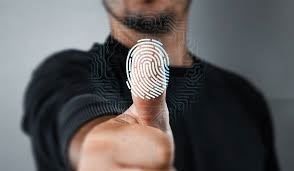On January 30, 2020, USCIS announced several updates regarding biometrics collection and fingerprint waivers on its official web site.
As one might know, USCIS collects biometric data from individuals in certain applications and requests related to immigration issues. The rationale behind this policy is conducting criminal and national security backgrounds and identity verification.
The regular procedure of collecting biometric is based on scheduling appointments for applicants at local Applicant Support Centers (ASC). However, in certain limited conditions and at the USCIS’s discretion, USCIS provides mobile biometric services for those who are unable to attend scheduled appointments due to their disabilities and health problems.
With this recent update, USCIS made clear that mobile service will not be provided to those in prisons and jails because of detention and incarceration. One important caveat here is that this regulation is not applied to those in DHS custody. They will still be able to receive mobile biometric services.
As per the fingerprint Waivers, the update reveals that any approved fingerprint waiver granted because of a medical condition will be valid only for the petition or application specified on the notice of the appointment, meaning that they cannot be used for future applications and filings.
For detailed info, you could check the policy guidance and/or visit the relevant web page.

